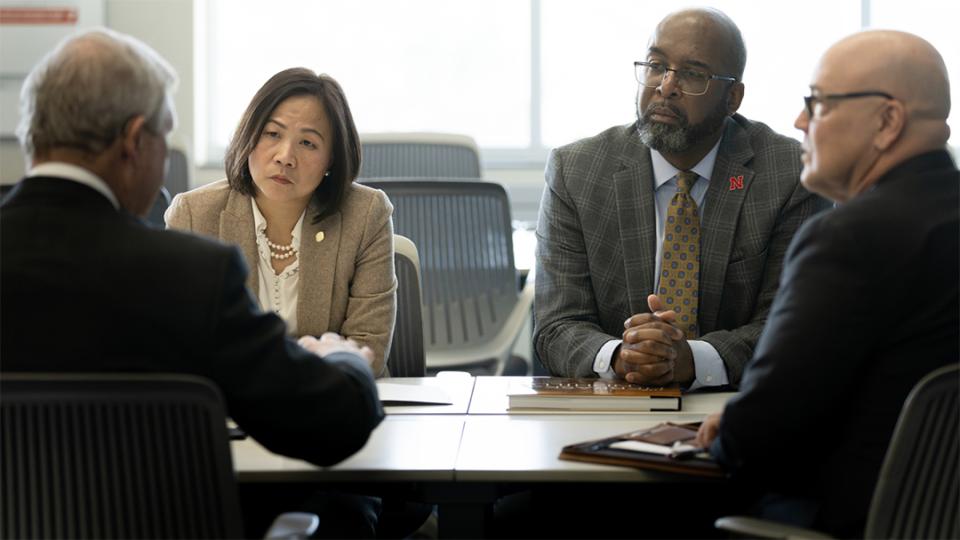
Campus Leaders, Students Meet with U.S. Ag Secretary During Visit
U.S. Secretary of Agriculture Tom Vilsack visited the University of Nebraska at Omaha on March 28 to discuss the future of agriculture with farmers, ag business owners, agricultural industry leaders and administrators and students from both the Lincoln and Omaha campuses of the University of Nebraska.
Vilsack discussed U.S. Department of Agriculture’s focus on climate-smart agriculture, as well as the department’s numerous programs designed to expand agricultural opportunities for both small and midsized farms, as well as for young and beginning farmers. After his comments, he also took part in a panel of USDA partners, including Tiffany Heng-Moss, dean of UNL’s College of Agricultural Sciences and Natural Resources, and Derek McLean, dean and director of UNL’s Agricultural Research Division.
Heng-Moss said CASNR has a strong focus on preparing the next generation of agricultural professionals, leaders and change makers. She highlighted several programs, including statewide partnerships between CASNR and K-12 schools in rural and urban parts of the state that introduce learners to concepts related to agriculture and natural resources. She also highlighted the Elite 11 Veterinary Scholarship Program, which launched in February and seeks to encourage more students to seek careers as food animal veterinarians, and the Engler Agribusiness Entrepreneurship Program, which helps students develop entrepreneurial skills and even launch their own businesses while still in college.
McLean highlighted a wide range of UNL research, including projects that grow precision and climate smart agriculture, better harness the data generated by precision technologies and reduce methane emissions by cattle. In the future, McLean envisions town squares in rural communities housing AI consulting businesses, robotics repair shops and futuristic pest management agencies that deliver beneficial insects to fields via drones.
“We’re futurists,” he said. “We think of ourselves as part of the engine that’s growing agriculture.”
Online Master of Science in Agronomy
With a focus on industry applications and research, the online program is designed with maximum flexibility for today's working professionals.
